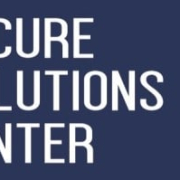What is our primary use case?
I have a friend who used to work at Sun Microsystems and when they were bought by Oracle he moved to Fortinet Switzerland. Now he is the boss of the wireless section of Fortinet Switzerland. We are building an apartment building with 30 floors that is the tallest residential building in the country. The name is Jabee Tower in Dübendorf. We have two penthouse flats there and each flat has 14 wireless access points. That is more access points than you could have with any other normal wifi system; you can not buy this kind of access capability through another vendor.
We have committed to the technology and now we are dependent on the Fortinet controller and the V2 cell technology which is exclusive to Fortinet. Fortinet obtained this by buying out a company called Meru Systems which is the inventor of the concept of V2 cell. The product allows their product to always maintain the same SSID (Service Set Identifier) for the BSSID (Basic Service Set Identifier) clients using the service. It is a kind of breakthrough in technology. So it is really unique and there is no competition for this type of solution at the moment. That is why Fortinet is the leading manufacturer in this area of cell technology.
The leading-edge technology was the reason I came to use Fortinet — not only because my friend was working there. But because their technology is very much on the leading edge of the marketplace we have a lot of interesting opportunities.
What is most valuable?
The concept of V2R cell services [similar to wifi hotspot technology], is a concept where a controller monitors the access points in the installation. It is possible to reduce the transmission power and that can reduce exposure of users and the community to the electrobiological effects of wifi. The goal is to try to reduce the radio power necessary and to only transmit the signal that you have to transmit to reach the access point.
In my work, I try to protect people from electronic emissions and V2R is one of my weapons against the current problems with exposure to wifi. You do not have to go blindly like Norway does and transmit with 100 milliwatts or 200 milliwatts of exposure if you have a better solution like V2R.
So the concepts where the controller is involved must be used in order to reach these goals at this time. In the Aruba product there is also a solution for the controller, but it does not do as much as the Fortinet. So Fortinet is alone on the ground level with this new concept.
On the other hand, the V2R cell solution has a limited lifespan because we know that wifi six is coming up. Wifi six is solving the transmission problems of wifi roaming in a different way. But for now, there is no competition for the V2R cell.
What needs improvement?
Something that can be improved by Fortinet is the organization-wide policy on service contracts. I find that it is a little bit stressful. They have a business model where whatever you buy, you must make a service contract. You can do that for one year or three years or five years. But it seems a little bit like a moneymaking machine rather than a necessity. They require these service contracts and that is not always so well accepted by the clients.
To judge the circumstances of the market by bigger business clients who can afford these additional fees may not be the best way to create policy. I work mostly with smaller clients on the threshold of breaking into a bigger business landscape. Mostly those clients are private people and for these people, these business requirements Fortinet has in place are not the best way to build up their successes.
I guess I cannot criticize their practices as failing because the company is obviously successful with it. I understand that they also need to make money for evolution, for research and development to stay competitive. But for the private sector, there is a gap. You have these professional suppliers like Aruba and Fortinet and then you have the small suppliers whose products you can buy in the shop around the corner. There is nothing in between. I think Fortinet could be more friendly toward smaller companies and individuals so they could have success with the products while building their businesses and then they are more likely to continue to use the products later.
I guess one other improvement they might consider making is with the design of the product. They do not have the most beautiful equipment I have seen in my life. They could hire a designer and the products could be improved substantially in a visual way.
For how long have I used the solution?
I have been using this product for about one year.
What do I think about the stability of the solution?
The stability is perfect. I have no problems with the product in that way.
What do I think about the scalability of the solution?
My clients could be any size: small, medium or enterprise companies. It does not matter but for the costs. All size users can be my clients, but for the moment I am mostly involved with private clients. I am involved in electrobiology in my personal endeavors. Wifi is on the corner of our activity because it is part of this field somewhat tangentially, but I am more of a consultant in electrobiology with an interest in how radio transmissions from wifi affects people.
How are customer service and technical support?
I had some calls with Fortinet technical support, which is in India, and I had some very good experiences with their team. It was very professional and I got my answers within a reasonable time.
I'm quite happy with both their online support and telephone support. It is very professional and there is nothing to complain about in that respect.
Which solution did I use previously and why did I switch?
Before Fortinet Wireless, I was working with Aruba. Aruba was not bad and we did use it quite a bit before it was bought by HP. But it did not have the same capabilities as Fortinet. We also used ASUS [a name derived from Pegasus] Access Point for some time. I have used modified third-party firmware called Tomato that can help control the behavior of different routers from other manufacturers. I also used DD-WRT [DD is the German car numberplate code for Dresden, Germany; WRT is "Wireless Receiver/Transmitter"] which is another third-party firmware solution.
When we started, we were using Linksys hardware a lot and then we switched to ASUS hardware. Then we went with this special firmware Tomato released for our ASUS hardware. That was a good solution and it was our main product for a while. It was a progression over time.
How was the initial setup?
The difficulty of the initial setup probably depends a lot on the level of user who is trying to use it. In the beginning, it took me only one day to do the setup because I had some similar experience. It took me one day for Aruba and it took me one day for Fortinet. The average, intelligent person can learn to set up this solution in a short period of time. But I would not say that it is intuitive for just anyone. You have to learn some theory about the controller and what the controller is doing. You have to read a few manuals. But it is almost intuitive, in general, and easy if you have some experience and are willing to learn. It is not made for a common laborer or for a housewife. It is made for an engineer who can read the manual and understand what is supposed to happen. It is quite usable in that case.
What about the implementation team?
We do the deployments and implementations ourselves.
What's my experience with pricing, setup cost, and licensing?
Fortinet would do something with their pricing model to attract smaller business users and eliminate the mandatory service contracts.
Which other solutions did I evaluate?
There is currently no competition for the Fortinet product. My experience over time with providing wifi solutions was my evaluation period.
What other advice do I have?
My advice to people is that the V2R radio solution is very good and that they should give it a try. Get a few access points — the minimum is two — to experience the V2R access concept.
When I was first playing with the solution, I set up the software controller on a virtual machine in the lab. Just with two access points, one controller and the V2 concept. That was an eye-opening experience. When you see it working, you immediately become a fan. You will make a prayer for this technology.
What is not so good is that Meru came out with the solution a little too late because now it will have a limited life and it will die. In five years, it will be obsolete. That is the long-term downside, but for the moment there is no alternative.
On a scale from one to ten where one is the worst and ten is the best, I would rate Fortinet Wireless as a nine-out-of-ten. They could improve a few things like the fact that the access points get a little hot and use a lot of energy. It is running at 30 watts per access point. Also, you need to power the access points over the ethernet, so the ethernet power must be strong. It is not possible to power it from switches. They should do something about the power problem.
But even with the drawbacks, my recommendation to others would be to give the solution a try.
Disclosure: My company has a business relationship with this vendor other than being a customer. Partner

















